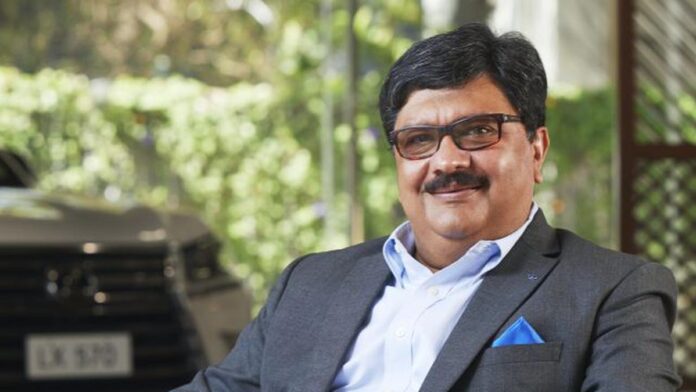
Naveen Soni, President, Lexus India
| Photo Credit: Special Arrangement
India has a great potential to significantly expand its luxury car market as the country, being a segmented market, now offers multiple consumer segments to tap into, said Naveen Soni, President, Lexus India, the luxury car arm of the Japanese automaker, Toyota.
“More people are becoming rich in our country. Plus, India is targeting a $5 trillion economy by 2030 and if that happens, wealth distribution will become broader as well. All these will boost the lifestyle sector and significantly drive sales of luxury cars,” Mr. Soni told The Hindu.
Moreover, the country has a segmented market and therefore different customer categories were available here for luxury car makers to tap into, he said.
Mr. Soni further said that to scale up the luxury segment, the government should make a long-term roadmap on taxation available instead of allowing knee-jerk reactions.
“If the industry has to be moved from one particular tax regime to another, a more liberal one, there should be a road map of 4 to 6 years. Also, environment-friendly technologies should be promoted with better taxation. For instance, maybe the government should introduce a carbon-based taxation system,” he suggested.
Lexus is currently in the process of expanding its customer base to de-risk its business and exploring newer buyer groups such as professionals, doctors, lawyers, start-ups, entrepreneurs etc.
“We are already seeing traction after the introduction of this market expansion strategy in India. The business accounted for some 80% of our sales until 2022. From now on we are looking at a more uniform distribution of sales. We are becoming a lifestyle partner for more people and not just a mobility provider for the few,” he elaborated.
Luxury currently accounts for only 1% of the country’s total car market while that pie is quite sizable in Europe (18%), China (17%), the U.S. (14%) and in Japan (5%). However, calendar year 2023 is likely to be the best year for the luxury car sector in the country with an expectation of selling 45,000 units, over 36,000 cars in 2022, and 42,000 units in 2018, according to him.
India is a fast-growing luxury car market in the Asia Pacific. (Luxus is one of the top 10 brands in the region and wants to become a top three player in 2023). “However, we have to keep an eye on the third quarter of CY’23 as the U.S. and Europe may be seeing some headwinds and certain customer businesses and exporters depending on these markets may go slow on their spend,” he cautioned.
Responding to a query on Lexus’ EV strategy for India where heat and dust would always remain as challenges, Mr. Soni elaborated, “Electric technologies are evolving, battery chemistries are changing and we are moving towards technology which is more friendly to consumers, that allows fast charging, and better performance even in heat and dust.”
Lexus has brought a few EV cars, on a sample order basis, to be driven on Indian roads. “We are driving them here to know what changes are required to survive the heat and dust. We are capturing feedback and sharing it with our headquarters in Japan. We are also developing the best technologies that will accept Indian challenges in the engineering stage itself,” Mr. Soni added.
#Indian #luxury #car #market #sizable #expansion #people #wealthy #Naveen #Soni
